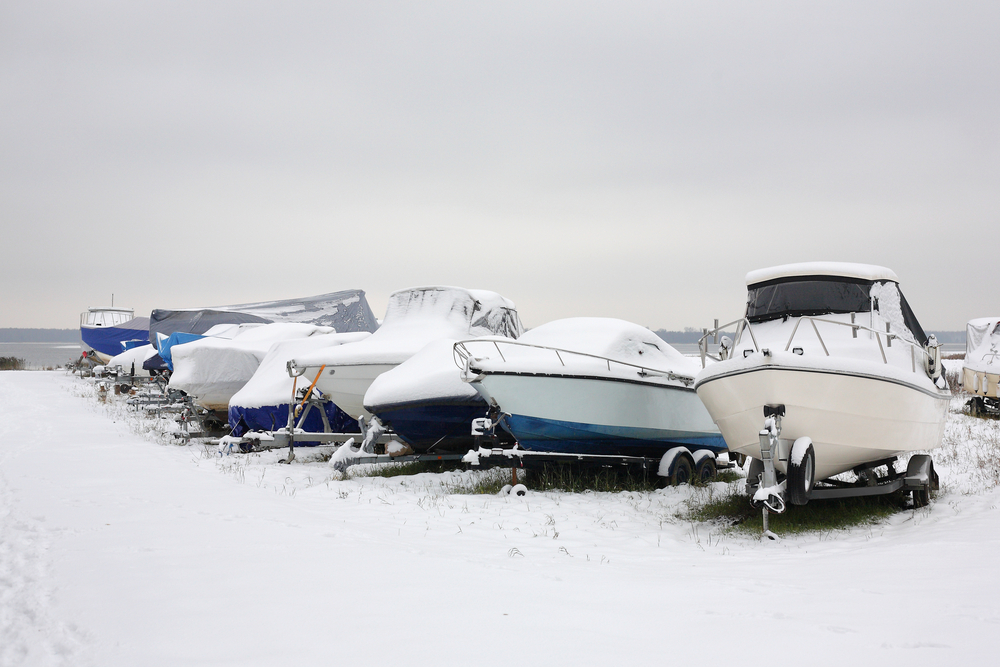
For many, boating is more than a passion – it often feels more like an essential part of their lives. When so deeply invested in such a hobby, both in terms of personal interest and from a financial perspective, it’s best to look out for your vessel at all times. This is especially important in the colder months of the year here in Canada, which can be brutal and unrelenting at times, meaning an increased risk of damage to your boat of choice.
Today, let’s help you look after your investment. Here are several tips for protecting your boat from winter weather, howling winds, and the bitter cold. Some of these will apply specifically to when your vessel is stored in the water, such as those focusing on pumping and bilge systems.
Close the Seacocks (But Not All of Them)
Seacocks are among the most important components on a boat, and they can be found on most vessels. This is a small valve below the waterline that allows for water to flow inside in a tightly controlled manner, which can be useful for cooling down the engine. It also consists of extremely meticulously arranged internal threads that can lead to excess water ingress if compromised or left open indefinitely. You’ll want to close all onboard seacocks except for the one in the cockpit area. Verify that this is done before storing your boat away for the winter, as you won’t need their functionality when the vessel isn’t in use. Also, for the cockpit, it’s a good idea for the cockpit to ensure the scuppers aren’t full of debris such as leaves, twigs, or seaweed.
Examine the Bilge Pump
Next, you’ll want to ensure your bilge pumping system is capable of operating throughout the winter. It should be able to function correctly even if the built-in battery switch is set to the off position. Double-check to ensure that it works as it should, as this system is designed to eject excess water from the hull in the event of a penetration. It’s not a guarantee that the boat will remain afloat, especially if the hull has been gashed open severely, but it should provide a little peace of mind.
Proper Ventilation is Key
Of course, damage from snow and ice storms isn’t the only risk; protecting your boat from winter weather also means safeguarding it against mould and mildew. This can be caused by excess water or moisture accumulation onboard, such in conditions with high humidity leading to condensation buildup over several months in indoor storage. Wherever you’re planning on storing the vessel for the winter, ensure it is fully ventilated and cycles the air thoroughly, as this will help to prevent the buildup of excess moisture and stagnant air.
Remove All Valuables
Not only can electronics be inadvertently damaged by temperature fluctuations or moisture, but if someone happens to take a fancy to your vessel and target it for a robbery, they won’t be stolen. The same goes for any highly valuable items that can be removed easily, such as irreplaceable documents, valuables stored in a compartment, and watersports equipment stored onboard.
Winterize Your Boat from Bow to Stern
There are several sub-steps associated with winterization. For starters, fill your vessel’s onboard fuel tanks and add a stabilizer to help look after the engine while inactive. Don’t forget to drain water from the engine as well. You should also change the engine oil, replace any fuel filters, and ensure that your coolant levels are ideal for months in storage. Lastly, for added protection of your engine if it uses gasoline, you might want to consider fogging your cylinders so moisture doesn’t accumulate.
Now that the “dirtier” work is out of the way, it’s a good idea to winterize the rest of your boat’s deck and interior spaces. Examples include removing all perishables like food, draining your water heater and onboard holding tanks, ensuring no water is pooling on-deck where it could otherwise freeze and cause damage, and turning off all heating systems, including propane tanks. The only thing that should be left on is your bilge pump, which should, again, be cleaned out and dry prior to saying goodbye to your vessel for the winter.
Cover Your Boat and Lock it Up!
We can’t emphasize this step enough. Covering your vessel with a properly fitting tarp that isn’t too loose or tight can prevent snow, ice, and water from getting on the deck, into navigation equipment, and elsewhere including in the cabin or head (if applicable). This also protects the hull itself, which is especially important if yours is made of fibreglass and/or has a coating applied to it.
Of course, no matter where you plan on storing your boat, it’s just good practice to lock everything up before storing it for the winter. If storing at a secure marina, hand over an extra set of keys so your boat can be looked after without you having to stop by.
Locking doesn’t only apply to doors, storage cabinets, and other similar areas; it also extends to the navigational equipment. Tying down your steering wheel or tiller is one such example, which prevents the rudder from moving about and getting damaged. It can also apply to tying up the boat in a manner that centres it in the slip, a crucial step that must be done properly. Lines should be able to hold indefinitely without excess slack as the vessel may otherwise shift, snap one or more of them, and subsequently break free.
Secure a Boat Insurance Policy with Storage and Year-Round Coverage
Lastly and most importantly, you should always be prepared for the unexpected, especially when it comes to owning, operating, and storing a boat of any size. Customized boat insurance coverage options are typically the optimal approach, such as ours offering increased coverage for personal effects, recovery costs, and agreed value. We’ll also provide new parts for any repairs needed from winter storm damage, and without any frustrating betterment fees. Additionally, boat insurance policies like ours offer 12-month-a-year coverage, including when being transported on the road, taking to the water, and stored, meaning your investment is always financially safeguarded. Generally, filing a claim should be easy and straightforward, and you should look for a reputable provider specializing in boating insurance as they tend to offer more comprehensive coverage.
If you’re seeking peace of mind when it comes to protecting your boat in the winter months or any other time of the year, we’re happy to assist here at Portside Marine Insurance. Get in touch with us today to learn more about our comprehensive and personalized policy coverage options.





